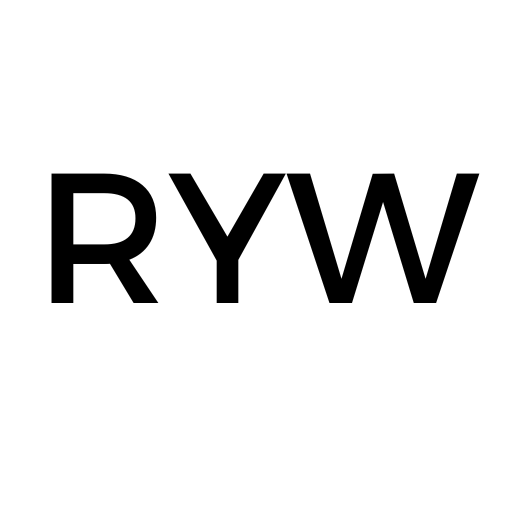
The problem with burnout is you’ve taken all available personal resources, to the point where you have nothing left. Unfortunately, the demand for resources is still chugging along, and odds are good you are either trying to meet demand (or even increasing demand) without acknowledging that you’ve got nothing left to give. You’re going into energy debt trying to meet needs – mostly other people’s, if we’re honest – and you’re self-destructing.
This may sound dramatic, even hyperbolic, but I promise you it isn’t.
At this point, what you need to do is acknowledge that you are in burnout, and that you have to take steps. That acknowledgment is what stops the initial downward spiral and prevents further damage.
You can’t manage your way out of burnout.
One of my late father’s favorite metaphors was “trying to fit 10 pounds of shit in a Dixie cup.”
(If you don’t know what a Dixie cup is, think of a small, wax-coated paper cup that’s barely bigger than your hand.)
If you’re trying to “manage” burnout, you’re essentially doing just that: trying to fit too much in a comically small time and energy container. It is an impossibility.
You can’t keep doing what you’ve done and expect things to change. You’re not going to miraculously get energy out of thin air or repair your burnout on “vibes” and good thoughts.
There are some short-term things you can do to calm down and help yourself, but ultimately, you’re going to have to take steps to get out. We’ll talk about long term life systems another time. Right now, you just need to get yourself out of burnout by taking out some of the things that are continually stressing you.
Drop whatever you can.
An old coach I worked with called this “getting out of quicksand.”
You’re going to look at everything you’re committed to. Job. Family. Social obligations. Whatever is spending your energy.
Write it in a mental “dump” list. This may take some time, but it’s important. Seriously. Don’t skip this.
Qualify your list.
Then, for each item on the list, you’re going to ask yourself:
- What does “done” mean?
- Is this an external commitment (to someone else) or an internal one?
- Does this get me farther in my goals, or not?
- Does this need to be done now?
- Can I delegate this to someone else?
- Can I lower my standards for what “done” looks like on this?
- Do I have to do this at all? Can I dump this completely? (If not, why not? What is the consequence if I drop this?)
This may sound like a lot, especially when you’re burned out.
The trick to stopping burnout means you’re going to need to actually take a full stop, as best you can.
That may seem impossible. You can’t just tell your boss “sorry, I’m taking stock and stopping my burnout.” Your young children won’t understand that their parent needs to take a few hours to think about their workload. You’ve got too much to do to take the time to write a list, much less answer all these questions about a list!
Or can’t you?
You might not be able to take a day off work, true. It’s a privilege to afford taking time off of work, and you may fear reprisal.
But you could, theoretically, swap time with someone to get a break from the kids. (Also a privilege. If necessary, you could take some time after they sleep. If they’re older, you might use screen time. It’s not ideal, but as of right now, think of this as an emergency. You are going to do some not-ideal things to get you to a better situation!)
You could tell your spouse that you’re burning out and you need help. You could tell all social obligations, charity obligations, whatever else, that you’re sick. Which, in a sense, you are.
Whatever you need to do, you’re going to carve time for yourself, which is the starting point anyway. And you’re going to look at what you need to do, to take care of yourself.
Confrontation and emotional load.
One of the biggest obstacles I’ve seen to addressing burnout is, honestly, other people. Specifically confronting others, disappointing others, or letting others know that you can’t or won’t do what they expect you to do.
Let me say from the outset: boundaries are hard.
It’s easy to say “draw some healthy boundaries!” and then face the fire of guilt, blame, or backlash when you actually draw those suckers. Most people I know experiencing burnout would rather remain in the fires of hell they’ve created than face it, in fact.
Think about that. They’d rather remain burned out, sick, hurting… rather than face someone else and hurt, disappoint, or anger them.
That is not sustainable.
Some positive tips and notes:
- There’s a lot less backlash than you’d think.
I used to have open coaching hours – I mean, totally open. If you were a client, I’d make it work for you. In Greece and want to talk with me at 3 a.m. my time? Sure! Want to schedule same day? Of course! Have four clients in one day? Why not?
Of course, that meant that my brain was tapioca by the time it came to working on my own writing projects, my home was suffering, and I was burning out like a candle with fifteen wicks. With trepidation, I finally set up a system and coaching hours.
To my surprise, clients worked with that easily with zero complaints.
2. Have guilt-avoiders at the ready.
There are people who are going to try and make you feel guilty for drawing boundaries.
Some may cajole: “We need you! We (have so few volunteers/need you on this project/barely see you let’s have fun!) Come on!”
Or try to run over your withdrawal, saying things like: “Don’t worry, it’s not that much time. And nobody does it as well as you do! You could do this in your sleep!”
Some might be passive aggressive to aggressive and place blame: “I guess it’s not going to get done, then.” Then stare at you judgmentally.
Have your boundary planned before you say it. Then say it in as gentle but firm a way as possible. They might want to start a fight, but you’re going to hold your ground.
(I also strongly recommend Nonviolent Communication by Marshall B. Rosenberg as a good source for how to speak with people and draw boundaries.)
3. You have every right to take care of yourself.
As always, I am no therapist, medical professional, etc. This is coming from personal experience.
You have every right to protect yourself. Your time. Your energy. Your boundaries.
You might think that other things are more important. Your family, your job, other people’s expectations or demands.
They may be important, without question. But they are not MORE important than you are.
There’s a bigger discussion here about personal worth here that, again, I’m not going to dive into (because whoa, that’s a big topic.) But you deserve to carve out time for yourself. You deserve to re-energize and heal.
If nothing else, taking care of yourself actually helps others. It’s the old “put the mask on first” analogy. If you’re burned out, your work suffers, your interactions with family become curt and resentful, you become more susceptible to illness. Taking care of yourself is a foundational element!
So I’m telling you: you are important. You are, in fact, vital. Don’t let anyone make you feel that you need to set yourself on fire to keep them warm.
Next time: what if it’s still too much? Burnout, Part 3.
What do you do if you’ve got the list pared down as much as you feel is humanly possible… and it still seems like too much?
Before rebuilding, the next step is going to be lowering your standards. Don’t worry. We’ll work that out.
In the meantime, hang in there! And as always, please email me with questions or comments, or if you need clarification. (Or just someone to listen.)
